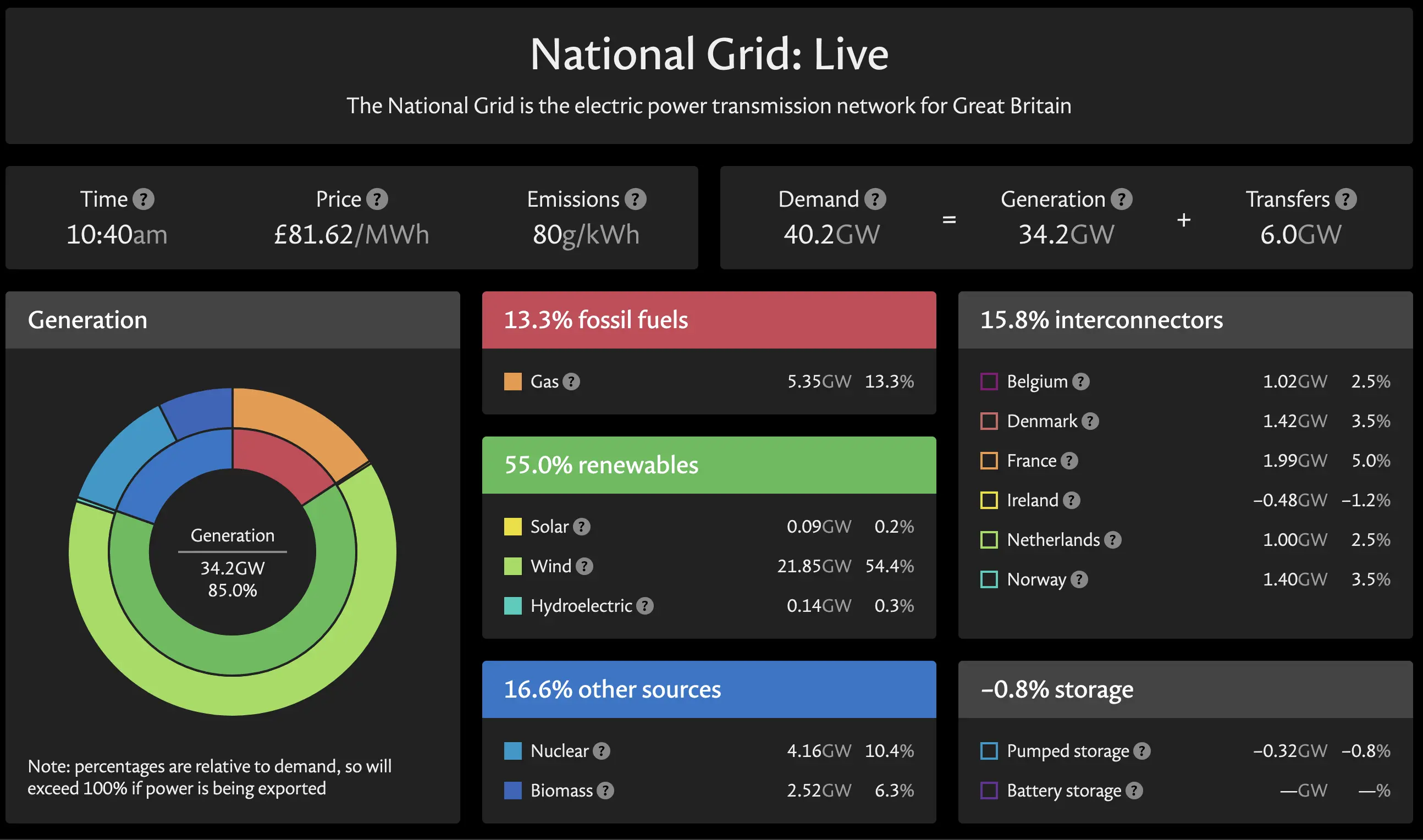UK Energy
255 readers
1 users here now
A place to post links and discussions around the UK's energy production, National Grid, energy consumption, and green energy news.
See https://grid.iamkate.com/ for the UK's current energy production and sources.
Created 23/07/23
founded 2 years ago
MODERATORS
1
2
Guidehouse Selected by DESNZ to Shape the Future of Great Britain's Electricity Market
(www.finanznachrichten.de)
2
3
4
16
UK and Ireland announce deal connecting offshore windfarms to energy networks
(www.theguardian.com)
5
6
7
8
9
10
9
Energy Dashboard - real time and historical GB electricity data, carbon emissions and UK generation sites mapping
(www.energydashboard.co.uk)
11
12
13
14
15

